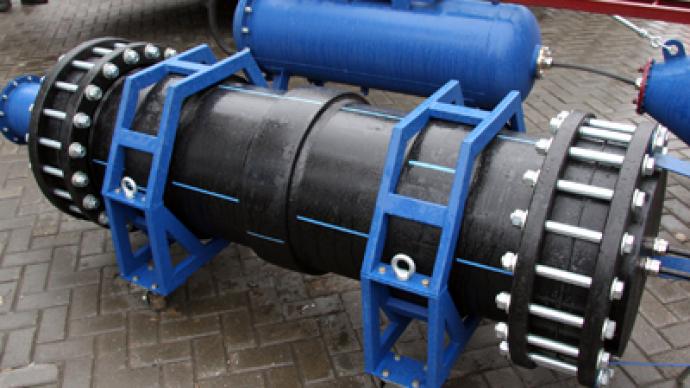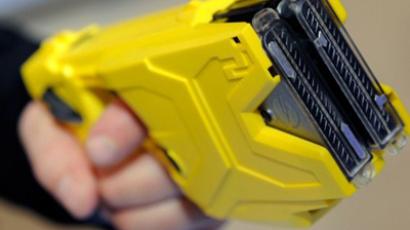Terror from the deep: Russian zap cannons go for bigger fish

The Russian Interior Ministry has posted a tender for two underwater cannons, at a cost of 400 thousand dollars each, which are expected to be used for large-scale events such as the Sochi Olympics.“The current state of security at our ports and dams leaves a lot to be desired, so the new systems will provide a layer of defense,” a security insider told Izvestia.The expected winners of the tender are Electric Rays – a home-grown product developed at a secret Russian military institute. Like their namesakes, these cannons use a powerful electric charge to create an underwater explosion that can stun intruders at a range of about 100 meters.“This is a more humane method of fighting terrorism,” says security expert Aleksandr Romanov “Before, they just used to carpet bomb a certain area with depth charges, which killed, while this weapon will only stun.”But ecologists are worried – there is little possibility of channelling the blast in a specific direction, and many sea creatures are bound to feel its impact.The President of the environmental protection charity Ecodefense Vladimir Slivyak is critical. “I think our special services have plenty of resources, and should be doing their job in a less ham-fisted manner. I think these purchases show that they are concentrating on conflict, when they should be focusing on prevention.” he told RT.Environmentalist Konstantin Sobinin is also worried about the sensitivity of the cannon’s detection system. “The sensors on these devices usually cannot detect whether an object within its range is a terrorist or a dolphin or a seal.”But Valery Braslavets, a former military diver turned environmental scientist, dismisses these concerns. “The charge is most likely to affect the eardrums of humans to stun them, but animals operate at different frequencies.” He also points out that police units tend to fire weaker warning shots to clear the area of fish and innocent divers, before unleashing a full explosion.Another security expert, Iosif Linder, gives the system his seal of approval. “Similar technologies have been used abroad, and they have proven themselves very effective.”Futuristic underwater cannons may sound like an unusual means of fighting terror, but they are hardly the most exotic.Both the Russian and US navies use specially-trained sea lions.Using their superior underwater sense, the creatures find an enemy diver, and either hook him with a special device so that he can be reeled in like a fish, or more simply, deliver a deadly charge to the enemy. No need for new-fangled technology there.
Igor Ogorodnev, RT






